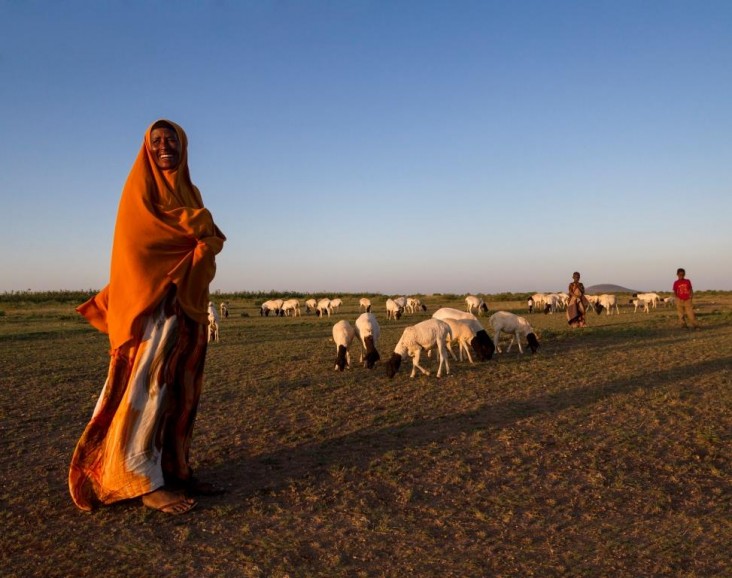
For Immediate Release
Addis Ababa – USAID’s Pastoralist Areas Resilience Improvement through Market Expansion (PRIME) project hosted an information sharing event which gathered project resilience experts, representatives of the Government of Ethiopia, members of the donor community and pastoralists themselves to discuss successes and challenges in expanding markets and making Ethiopia’s pastoralists more resilient to climate change. Ministry of Livestock and Fishery representative Gezahegn Tadesse and USAID Ethiopia representative Gary Robbins participated in the discussions. Taking into consideration the challenges posed by the current drought, the event also served as an excellent opportunity to garner feedback, which will be applied to ensure that future program implementation best addresses the needs of pastoralist communities.
Major results of the project to date include the following:
- Established and expanded three micro-finance institutions in the Somali and Afar regions, which are now providing much-needed financial services for rural families
- Applied improved technologies or management practices on over 20,000 hectares.
- Rehabilitated the Haro Bake micro-dam, which now provides water for 15,000 households and their livestock in Oromia
- Leveraged $24 million in private sector investments through six investments in private companies
- Established the first mobile and agent banking service in the Somali Region, which is allowing pastoralists easier access to banking services, including loans and money transfers. 50,000 additional people now have access to finance
- Reached 70,000 households with nutrition activities targeted at improving household nutrition security
- Created more than 1,700 jobs in pastoralist areas
- Increased sales for beneficiaries in livestock value chains, including dairy by more than $7.7 million in value in 2015 alone
- 160,000 households now have access to veterinary medicine helping to keep their livestock healthy
PRIME’s market systems approach, which facilitates and supports, rather than just providing goods/services directly, helps ensure that all successes are achieved together with and owned by the benefiting communities. This approach makes development gains sustainable and ensures their positive impact will long outlive the project’s lifespan.
Talking about USAID’s work with pastoralist communities, Robbins noted, “Even now, in the face of drought conditions like those we are currently experiencing in Afar and Sitti, we can see that households and communities are now better equipped to cope than they were just a few short years ago.”
Under Feed the Future, the U.S. Government’s global food security and hunger initiative, USAID, through its Pastoralist Areas Resilience Improvement through Market Expansion project, works with the Government of Ethiopia to transform the drylands in the Afar, Oromia and Somali regions and the lives of people living there through improved natural resources management, better nutrition, more jobs, and increased income for milk and meat producers. The project empowers communities to collectively design and engage in targeted natural resources enhancement initiatives and establish effective systems to manage pastures and water points.
See also
Press Release PRIME Exhibition 11-18-15 [PDF, 31kb]
USAID Remarks PRIME Exhibition 11-18-15 [PDF, 111kb]







Comment
Make a general inquiry or suggest an improvement.